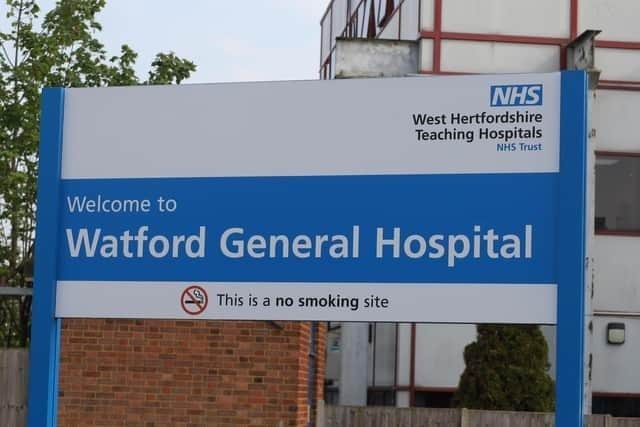Hertfordshire NHS chief warns services are now under “extreme” pressure
and live on Freeview channel 276
Health chiefs are warning that services in Hertfordshire are now under “extreme” pressure.
And they are stressing that hospital A&E departments can only treat people with “serious, life-threatening or dangerous conditions”.
Advertisement
Advertisement
A&Es at the Lister and Watford General hospitals, the ambulance services, GP practices and community health services are all said to be “stretched” by the number of people calling on them for help.


And now Jane Halpin, chief executive of the Hertfordshire and West Essex Integrated Care Board (HWEICB) – which oversees NHS services locally – says services are under such “extreme pressure” that it is “vital” everyone understands the urgency of the situation.
She is warning that those who turn up at A&E with minor conditions could face a ‘extremely’ long wait – or be turned away.
And she says those who call for an ambulance unnecessarily could endanger the lives of others.
Advertisement
Advertisement
In a hard-hitting statement, she says: “The Accident and Emergency departments at our hospitals only have the capacity to treat people who have serious, life-threatening or dangerous conditions.
“Ambulances should only be called in genuine emergencies.
“If you use emergency services incorrectly you are risking the lives of others and won’t get the best treatment for your illness.
“If you come to A&E with a minor condition or illness, your care will not be a priority and you will face an extremely long wait.
“You may be sent away to visit a GP or pharmacist.
“If you call 999 for an ambulance and you don’t need one, you could endanger the life of another person in desperate need of emergency care.”
Advertisement
Advertisement
Dr Halpin is also urging people not to visit hospitals – as a patient or visitor – if they are suffering from common winter illness, such as a chest infection, cough and cold, diarrhoea or vomiting.
“Spreading your minor illness to people who are seriously ill can close hospital wards and won’t get you the help you need,” she says.
“Our services are under extreme pressure, which is why it’s vital that everyone understands the urgency of the situation and what they can do to ensure that we protect essential health services for when we really need them.”
Alternatively the HWEICB is suggesting patients can receive advice from the NHS website, pharmacies or GP practices.
Advertisement
Advertisement
They also highlight the 111 service that offers round the clock advice for urgent but non-life threatening situations – and say that by calling 111 and selecting option 2 there is a service for those in a mental health crisis.